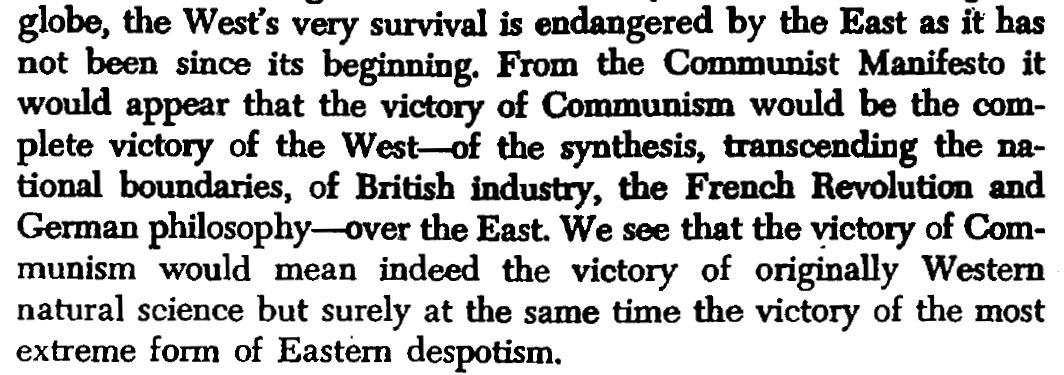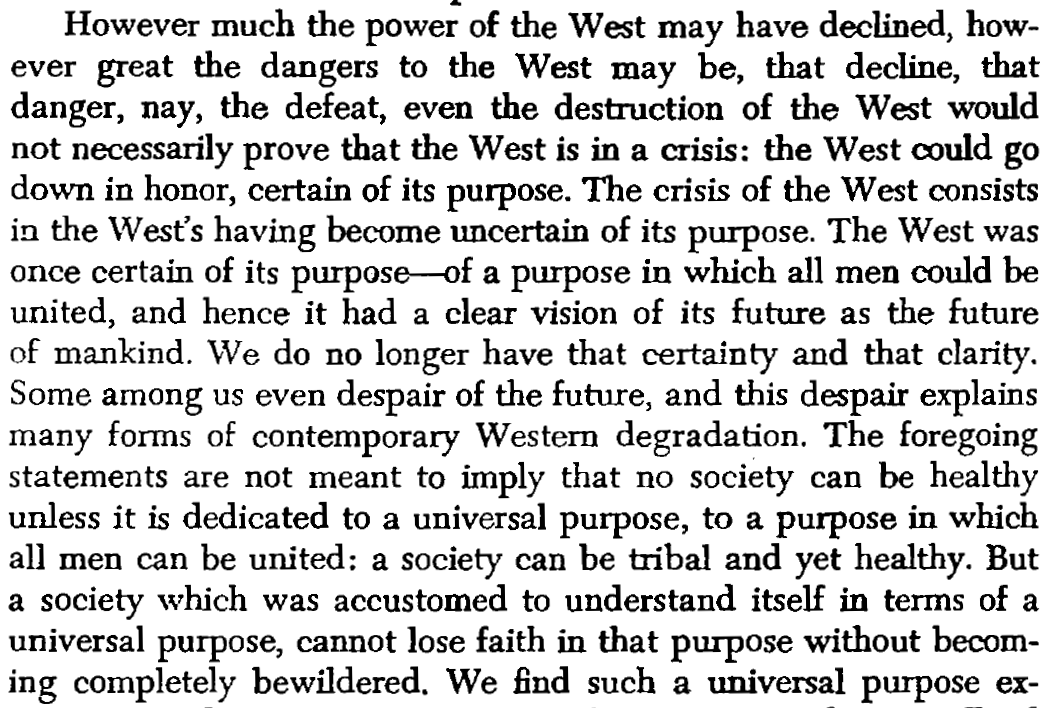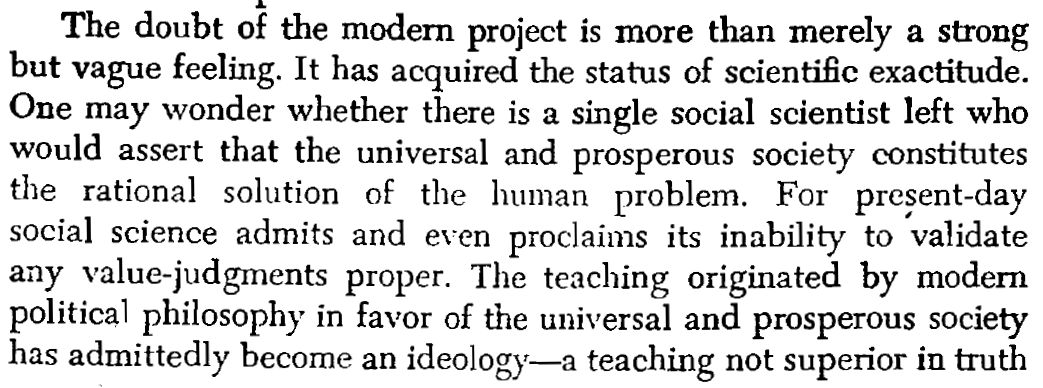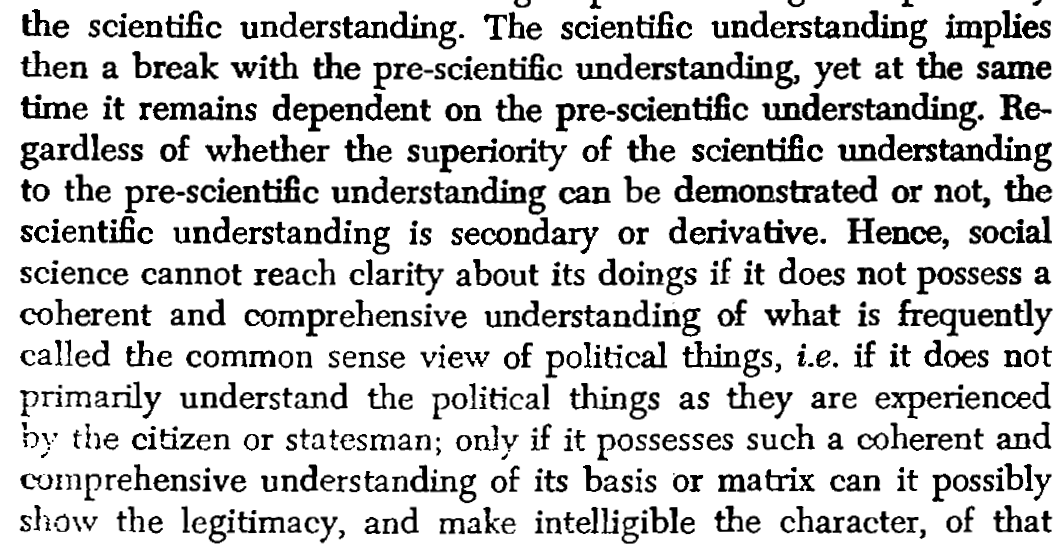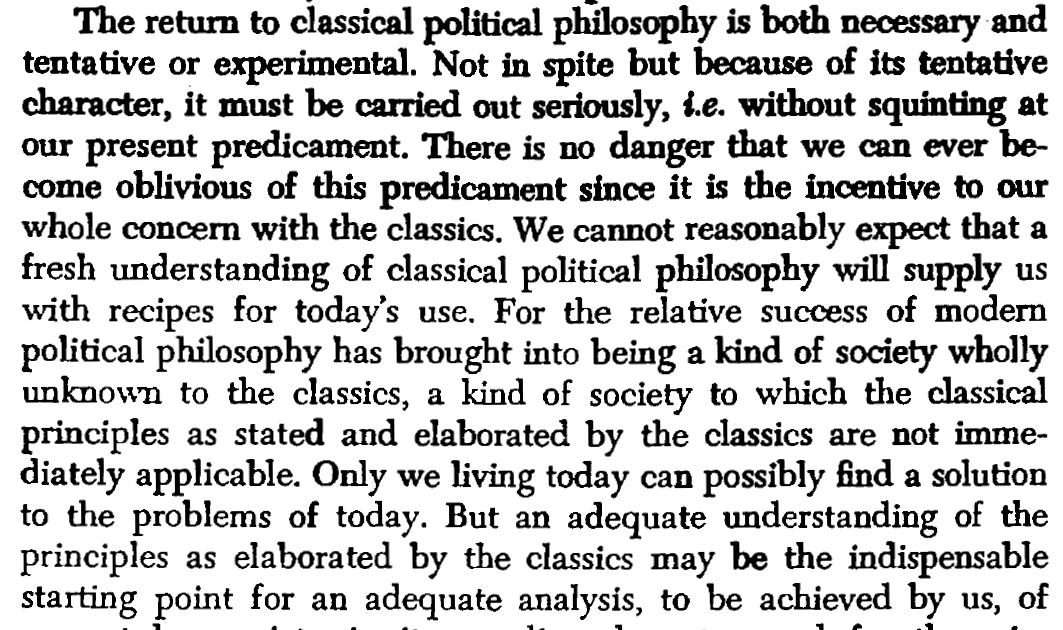- 1978
- The City and Man consists of provocative essays by the late Leo Strauss on Aristotle's Politics, Plato's Republic, and Thucydides' Peloponnesian Wars. Together, the essays constitute a brilliant attempt to use classical political philosophy as a means of liberating modern political philosophy from the stranglehold of ideology. The essays are based on a long and intimate familiarity with the works, but the essay on Aristotle is especially important as one of Strauss's few writings on the philosopher who largely shaped Strauss's conception of antiquity. The essay on Plato is a full-scale discussion of Platonic political philosophy, wide in scope yet compact in execution. When discussing Thucydides, Strauss succeeds not only in presenting the historian as a moral thinker of high rank, but in drawing his thought into the orbit of philosophy, and thus indicating a relation of history and philosophy that does not presuppose the absorption of philosophy by history.
- ^^[[The crisis of the West]] is the reason to study political thought of classical antiquity^^ = to solve Western decline, we turn to philosophy
- The continuation of classic political philosophy is now impossible as it's confronted with the evolution of science
- Modern political philosophy has turned into ideology [[Contemporary Crisis of the West]]
- This [[Contemporary Crisis of the West]] was diagnosed by [[Spengler]] as [[Western Decline]]
- [[Spengler]] is wrong in seeing terminality in that decline, for as long as science still has unsolved problems (is infinitely progressible), man's highest possibilities cannot be exhausted
- Problem with [[Leo Strauss]] - he is introducing the terminality here. The fact that decline happened doesn't mean it was deemed terminal and vice versa
- [[Communism]] (in the East) is now threatening the West
- The original goal of the West was unification of all cultures. We are no longer certain of that goal. It's a crisis of purpose.
- How do we defend against Communsim?
- For a while the key diference between Communism and the West was the means (not the goal). Murder is justified in Communism. Morality = the choice of means. BUT - No bloody or unbloody change of society can eradicate the evil in man. No society can avoid to employ coercive restraint.
- So Communism = iron rule of a tyrant, mitigated or aggravated by his fier of palace revolutions.
- There cannot be a Universal state (federative, or unitary).
- If the federation is taken too seriously one will take great risks to defend existing boundaries (just according to self-determination of nations), but it's a fraudulent assumption.
- Instead the Communists will dictate the boundaries.
- Nobody thinks a universal, prosperous society can exist:
- The "Common sense" non-scientific understanding is foundational because science was always secondary. Question Is it secondary because it emerged later or in another way?
- The classics won't offer a full answer but are indispensable in the analysis:
Created
October 26, 2020 21:12
-
-
Save Pet3ris/9768d5ee2eff85908e006e114ad47992 to your computer and use it in GitHub Desktop.
Sign up for free
to join this conversation on GitHub.
Already have an account?
Sign in to comment





